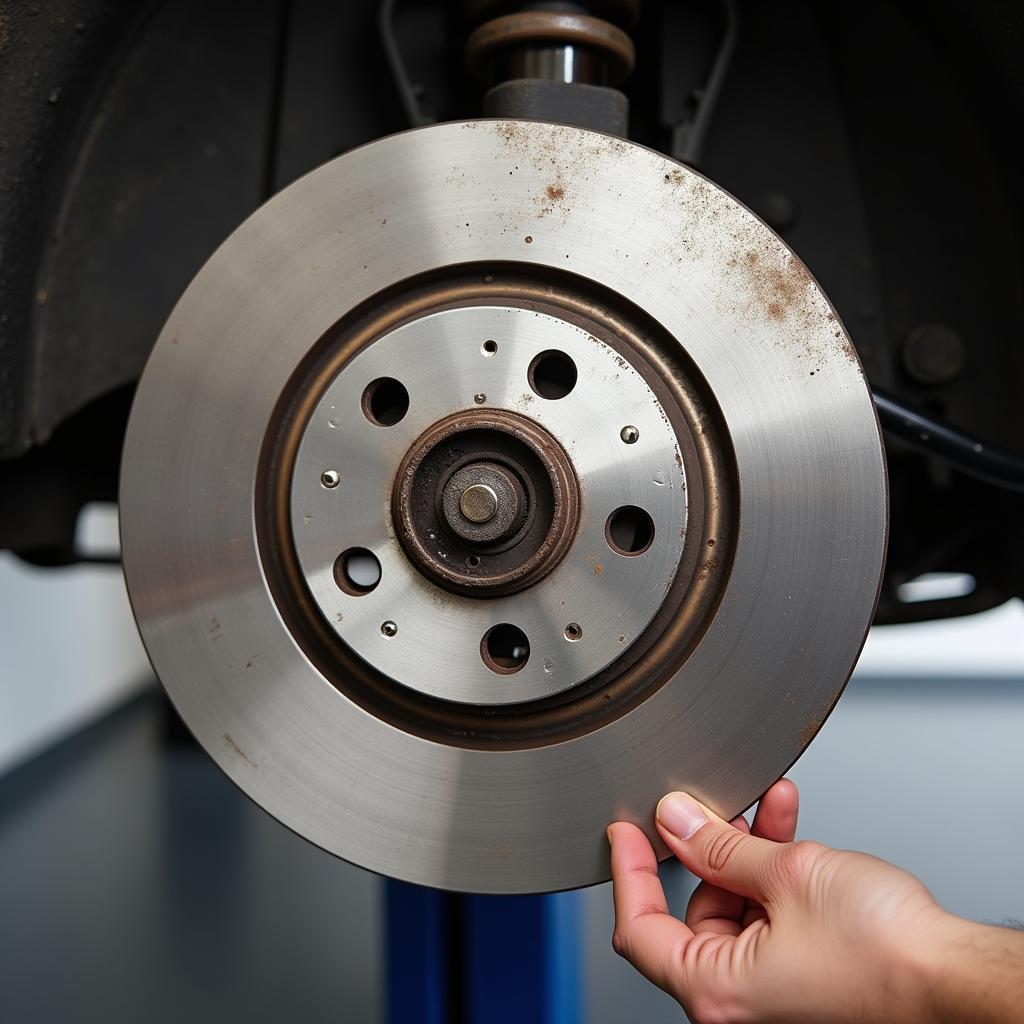Car companies sometimes employ tactics that can feel deceptive during the service process. Understanding these tactics can empower you to make informed decisions and potentially save money. From unnecessary repairs to inflated prices, let’s explore How Car Companies Cheat Customers In Service and how to protect yourself.
Unnecessary Repairs: The Most Common Tactic
One of the most common ways car companies cheat customers is by recommending unnecessary repairs. This can range from suggesting a full brake pad replacement when only a minor adjustment is needed, to flushing fluids more frequently than recommended by the manufacturer. This often preys on a customer’s lack of car knowledge.
- Fear tactics: Service advisors might use scare tactics, exaggerating the potential consequences of not performing a repair to pressure customers into agreeing.
- Jargon overload: Technical jargon can confuse customers, making it difficult to understand what’s actually needed. They might agree to a repair simply because they don’t understand the explanation.
- Bundling unnecessary services: Sometimes, necessary services are bundled with unnecessary ones, making it harder to refuse the extra charges.
 Unnecessary Brake Pad Replacement
Unnecessary Brake Pad Replacement
Inflated Prices: Paying More Than You Should
Another common tactic is inflating the prices of parts and labor. This can be especially prevalent with routine maintenance like oil changes or tire rotations. Dealerships often charge significantly more for these services than independent repair shops.
- “Genuine” parts markup: Dealerships often push for “genuine” parts, which are often marked up significantly compared to aftermarket parts that offer similar quality.
- Vague labor charges: Labor charges can be vague, making it difficult to understand how much time was actually spent on the repair. This lack of transparency can easily mask inflated charges.
Misdiagnosis: Leading to Costly Mistakes
Sometimes, a misdiagnosis can lead to unnecessary and expensive repairs. This can occur due to incompetence or intentionally to generate more revenue.
- Pushing for unnecessary diagnostic tests: Service advisors might recommend extensive diagnostic tests even when the problem is obvious, racking up additional charges.
- Blaming unrelated issues: A minor issue might be blamed for a larger problem, leading to a more costly repair than necessary.
How to Protect Yourself: Be an Informed Consumer
Fortunately, there are ways to protect yourself from these tactics. Being an informed consumer is your best defense.
- Get a second opinion: If you’re unsure about a recommended repair, get a second opinion from another mechanic.
- Research common issues: Before taking your car in for service, research common issues for your make and model. This can help you identify potential upsells.
- Ask questions: Don’t be afraid to ask questions about the recommended repairs and the associated costs. A reputable mechanic will be happy to explain everything in detail.
- Maintain records: Keep detailed records of all your car’s service history, including receipts and invoices.
Conclusion: Empower Yourself and Save Money
Knowing how car companies cheat customers in service can empower you to avoid unnecessary expenses and maintain your car effectively. By being proactive, asking questions, and seeking second opinions, you can ensure you’re getting the best possible service at a fair price. Remember, knowledge is power when it comes to car maintenance.
FAQ
-
What are some common signs of unnecessary car repairs? Sudden recommendations for major repairs without prior warning, pressure to perform repairs immediately, or vague explanations of the problem.
-
How can I find a reputable mechanic? Ask for recommendations from friends and family, check online reviews, and look for certifications like ASE (Automotive Service Excellence).
-
Is it always cheaper to go to an independent repair shop? Not always, but independent shops often have lower overhead costs and can offer more competitive pricing.
-
Should I always use “genuine” parts? Aftermarket parts often offer similar quality at a lower price. Discuss your options with your mechanic.
-
How can I learn more about my car’s maintenance needs? Consult your owner’s manual and research online forums specific to your car’s make and model.
-
What should I do if I think I’ve been overcharged for a repair? Contact the service manager or the dealership’s customer service department. If the issue isn’t resolved, consider filing a complaint with your local consumer protection agency.
-
How often should I get my Car Serviced? Refer to your owner’s manual for the manufacturer’s recommended maintenance schedule.
Need assistance? Contact us via WhatsApp: +1(641)206-8880, Email: [email protected]. We have a 24/7 customer support team.
Leave a Reply